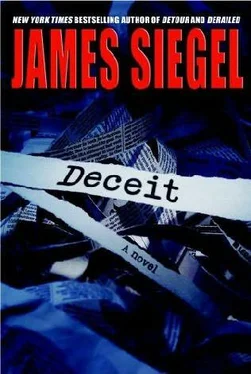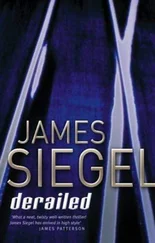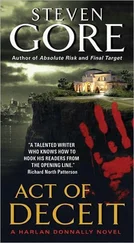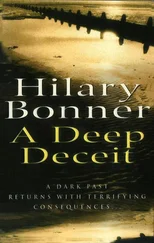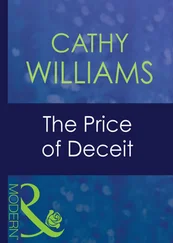A few politicians of note attended the funerals. The vice president, Dick Nixon, came all the way from Washington and held Pat’s hand as they lowered a local alderman into the earth. The lieutenant governor of California attended two burials. Billy Graham said last rites over the Littleton Flats priest.
Life magazine sent a photographer who dutifully immortalized the massive outpourings of grief. One of his photos was reprinted in the Littleton Journal , of an elderly man from Minnesota, head bowed, dressed in black, white handkerchief dabbing at his eyes, paying respects to no one in particular-subscribing to the quaint notion that we’re all relatives in the family of man.
Flags in California drooped at half-mast for an entire week.
Bailey Kindlon’s smiling picture appeared four days after the disaster. She had two full moons for eyes and a smattering of freckles on both cheeks, a female Howdy Doody.
Lone Survivor!
The article said she was found floating on a storm door that had once been attached to Littleton Flats Grocery but was discovered six and a half miles away. She was rescued by a National Guardsman named Michael Sweeney. No mention of space robots clicking away like dolphins. She was reported to be in good physical health, despite minor scratches and bruises.
By the second week, articles about Littleton Flats followed the fate of the town itself and disappeared. Newspapers are constant reminders of that banal cliche uttered by survivors everywhere, that life goes on.
Local elections had to be followed and reported on. Box scores had to be reprinted and scrutinized. Weather had to be forecast and complained about. Senators in Washington who’d offended the national sense of fair play had to be reprimanded (quietly) and nuclear blasts in far-off places dutifully chronicled. Beetle Bailey, Li’l Abner , and Peanuts needed to be caught up with.
The next mention of the Littleton Flats disaster concerned the government commission that was going to get to the bottom of it all. That would decide who’d be publicly flogged to satiate the national bloodlust for a villain; 853 deaths demanded it.
Lloyd Steiner would get his fifteen minutes of infamy.
There was just one picture of him.
He was exiting the courtroom after a day of what must’ve been useless and damning testimony. A smoking gun had been found and brandished: secret blueprints found in Steiner’s possession that clearly illustrated a foreknowledge of certain structural shortcuts that had been approved and implemented.
Ostensibly by Steiner himself.
He’d evidently been caught unawares by a flashbulb, his head whiplashing back like a performer being whisked offstage by an unseen cane, his glasses lit up like Christmas bulbs. Which was metaphorically apt-the villain of the piece being snatched off the national stage to a federal prison cell, where he’d spend the next ten years.
I wandered back to my desk.
I devoured a cup of Norma’s awful coffee, then went back to the coffeemaker and poured another.
Nate the Skate asked me for something to do, evidently believing that hard work was just the ticket for a ruptured heart. I gave him my hastily scribbled articles to proof.
Norma was monitoring the phone for news from the hospital. A nurse in ICU was calling periodically with updates on Hinch’s wife, none very promising.
I sat back in my swivel chair and played back the microfilm in my head, an endless loop flickering with stark and sobering images that nearly lulled me to sleep.
Nearly.
“Nate?” I said.
He peered up from his desk, looking suddenly older. I suppose loss will do that to you.
“How many Westinghouse finalists are there every year?” I asked him.
“What?”
“The Westinghouse Awards for high school kids. How many science finalists do you suppose there are every year?”
“I don’t know. Why?”
“Take a guess.”
“Not a lot.”
“Yeah. I wouldn’t think there are a lot either. I would guess fifty, maybe. Probably wouldn’t be more than that.”
“Why are you asking?”
“Let’s put it another way. What would you say the odds were that there’d be five from the same high school?”
He shrugged. “I don’t know. Isn’t there some big science high school in New York-the Bronx High School of… whatever ?”
“The Bronx High School of Science. Sure-there might be five finalists from that high school. What about some other high school?”
“Is this a trivia game or something? Because I don’t want to play, Tom. Sorry, I really don’t. I’m in pain here. I’m dying.”
“I’d say the odds of there being five Westinghouse finalists from a single high school other than the Bronx High School of Science would be, to use a scientific term, astronomical.”
“Okay, fine. You win.”
“Now, what if it were a tiny high school? Some school literally out in the middle of nowhere? You’d be talking odds so ridiculous that Vegas would have to take it off the boards. Wouldn’t you think so?”
“I guess. Why?”
“Nate, I do have something for you to do. Something to get your mind off Rina.” At the mention of his ex-girlfriend’s name, Nate actually winced.
“What?”
“I want you to find out everything you can on the people who lived in Littleton Flats.”
“Littleton Flats ? The town-the one that got, you know?”
“Wiped out, right. I want you to see if you can find out who those people were.”
“You mean, their names?”
“I have their names. Names are easy. I want to know who they were. What they did for a living. Where they came from. That kind of thing. Some of them must have relatives that are still alive. I need anything you can find.”
“Excuse me for asking, but when did those people die?”
“Fifty years ago.”
“Right,” Nate said. “ That’s going to be easy,” exhibiting a sarcasm rare for him. Maybe it was his newly wounded heart-there he was skating through life, and he’d gone and taken his first tumble. He was all skinned innocence and bloodied optimism.
“Try the Internet,” I said. “Aren’t you the computer whiz? Didn’t you discover how to get on PinkWorld.com without paying?”
That seemed to momentarily brighten his disposition.
“Okay,” he said. “I’ll give it a shot.”
Hello, who is this? Hello?”
I’d followed the usual pattern of first getting drunk-soused enough to dial his number, but not so drunk that I couldn’t remember it. It was a delicate balancing act.
“Hello, hello…”
It’s me. Tom.
I was the second most surprised person on the line to realize that the words had actually been said out loud.
“Tom? Tom Valle?”
I reverted back into silence-for a moment I did, contemplating the enormity of finally beginning a two-way conversation with the man whose life I’d personally and irrevocably destroyed.
“Yeah.”
Now it was his turn to retreat into silence, a silence so complete that I thought I could hear the second hand ticking away on the grandfather clock that sat against the east wall of his study. I’d been invited into that inner sanctum in the halcyon days of yore, when I was the rising hot shot and he the editorial conscience in residence.
“Was that you?” he finally said. “All those other times? That was you on the phone?”
“Yes, that was me.”
“I see.” Another moment of silence. “Mind telling me why, Tom? Did you wake up one day and decide to add phony phone calls to your oeuvre of phony journalism?”
Okay, it hurt. But the pain was accompanied by a sudden sense of relief. I once wrote a piece on a sect of self-flagellators; it had taken till now to understand the rapture on their faces as they punished themselves for sins against God.
Читать дальше
